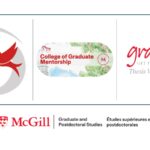When I was a graduate student in the mid-seventies, the PhD program was reserved for those who planned an academic or research-focused career. Today, many students are looking, not to life in academia, but beyond the labs and classrooms of Canada’s universities.
A recent piece by CAGS President Dr. Brenda Brouwer is a good wake-up call. It is time for graduate schools to design programs that reflect a fluctuating economy. But they can’t do that on their own. Those of us in industry need to recognize the benefit of a PhD when looking for qualified employees – and future leaders. And PhD students need to consider what they can offer to the business world as they design their graduate training.
There is a bit of a stigma towards PhDs. They are often viewed as over-qualified for entry level positions in the business world. I do not have this degree. Both my father and daughter do and I am proud of them for it. They are highly pragmatic people sharing my “can-do” approach. They have taken hands-on roles to research as well as teaching. My father even parlayed his expertise into a long-term consulting practice outside of academia.
In my forty-year career in industry, I have worked with many PhDs and found them to be highly competent people. At times they tended to hyper-focus on small details, but that is often needed in the types of work that they do. None of them were in academia or research. All were highly successful. I attribute this to their ability to focus on a task for a long period of time, to delve deeply enough into a challenge to understand how solve it. And yes, they are also just plain smart. In industry the ability to play on a team is a huge factor in an individual’s success. The PhDs that I have met have learned this trait. Collaboration is key, particularly on a task requiring deep focus. Think of how long and how many people were required to develop the iPhone. Or launch a satellite.
During the development phase there is little money available and even less credit. Sounding like a PhD program? Well those traits are critical for success in industry too. Success in business comes to those who persevere, regardless of obstacles. Same with research.
Here’s my advice to PhD students: focus on a field that has practical import. Use your in-depth research to advance a broader understanding of technology, psychology or any human endeavor that is on the cutting edge of development. For example, there are useful parallels between advanced physics or mathematics and computer components. But it would be harder to find that connection with Eighteenth Century French Literature. The latter will have a harder time finding work that might benefit from their insights.
Graduate schools have a responsibility to teach skills that are transferable. Some in academia might disagree and say great discoveries are serendipitous. The reality is that graduate schools, universities, government and students are all subject to the laws of economics. If you generate a profit from a product or service, you will thrive. If you don’t, you lose control of your future and your long-term success is uncertain. A transferable education is one where critical thinking and performance skills can be quickly and easily adapted to an unrelated context with similar challenges. It is the thought and behavioral processes that count, not whether you already have a detailed knowledge of the subject. University teaches you how to learn and think. Business teaches you how to adjust your thinking to make a profit.
An understanding of how business works helps. Just as we in industry would do well to learn how research works in the real world, so too would PhD candidates benefit from knowing how businesses turns a profit. Making money for a firm and getting a job are intimately connected. This will be a good use of your time because you’re going to have to understand finance, marketing, and balancing a budget at some point in your career.
It might help professors to understand this if they put themselves “out there”. They should step away from their academic colleagues and research journals and visit factories and front line professionals in their discipline. They should be talking to the heads of marketing, manufacturing and finance to find out how companies work and make partnerships. They need to ask what tough tasks there are that could be suited to thought processes learned as a PhD. And they need to prepare students for these tasks. It won’t be easy. but then again it is not easy for new graduates entering the working world.
The same challenge applies to industry. Got a tough task? Visit a graduate school for ideas. Too often we industry-types just hang around our own. We fail to learn from those with advanced knowledge in an area. Joint industry / university career days and partnerships help. We visit your school and you visit our plant. My most insightful experiences have come from just wandering around and asking dumb questions. People are happy to help me learn. Insight is not confined to the classroom.
My daughter, who is an assistant professor in the Queen’s School of Nursing, would urge you to think of your graduate training as the ideal time to venture out of your discipline to take business courses (i.e. massive, open online courses), inquire about industry sponsored fellowships opportunities such as MITACS or investigate how to get seed funding from organizations like MaRS. Above all else, I would recommend that you READ as much as you can. If you think that there are not profitable ideas in your research area, you need to become more creative in your thinking. Or change your research area.
Too often, advanced students are overlooked simply because they have not learned to sell themselves. If I have learned one thing in my career – it is that you need to do this. PhDs are no exception.
If I want to sell my ideas, or need to learn from others, then I have to go out there and meet them. Joining professional organizations; going to non-academic conferences; asking for a plant tour; offering services in novel ways; or just picking up the phone and calling – these all work (note to graduates: a phone is far more effective than email or social networking for this task). Today’s PhDs who take advantage of this knowledge and will have a leg up on everyone else.
You need to get out in the world and present yourself. In person. Or phone. Professionally dressed. With confidence. And be prepared to explain, in two minutes or less, why you can help the listener solve some pressing concern that they have to make their business more profitable.
You will be surprised how receptive people are to this approach.
Ian Baines is President of Windstream Energy in Kingston, Ontario.









